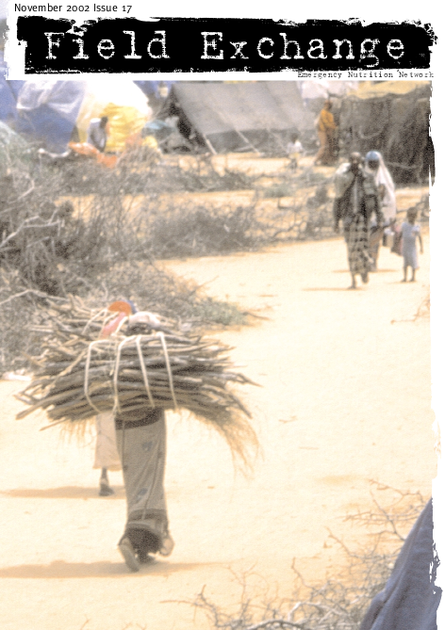
Ethical considerations figure prominently in this issue of Field Exchange. A field article written by Dr. Eva Grabosch tackles the problem of providing sustained resources for the treatment of severe malnutrition in countries with chronic nutritional situations. Working in local hospitals in Guinea and Malawi, Dr Grabosch describes how previous feeding programmes supported by international agencies relied on expensive ‘therapeutic’ foods which could no longer be provided by the local health service once the agency had moved on. She describes how negotiations with the hospital authorities resulted in a small budget being set aside to provide for cheap local foods, using innovative recipes (one involving peanut milk and the other a mixture of milk powder, corn flour and oil) to provide a therapeutic-type milk. Although not ideal in terms of treatment of severe malnutrition, they proved an effective nutritional compromise. Whilst not explicitly addressed, the article does raise an issue regarding the ethics of international agencies implementing a type of programme which cannot be sustained once the agency chooses to withdraw. It also highlights the dilemma of how far nutritional standards should be compromised, without truly knowing the risks we are taking on beneficiaries’ behalf until they happen.